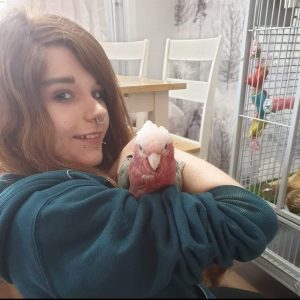 The inquest into the death of Shannon Hackling concluded on 22nd March 2023. The inquest was held at Worcestershire Coroner’s Court in front of HM Assistant Coroner Ms Sarah Murphy.
The inquest into the death of Shannon Hackling concluded on 22nd March 2023. The inquest was held at Worcestershire Coroner’s Court in front of HM Assistant Coroner Ms Sarah Murphy.
Shannon sadly died on 2nd May 2022. The Coroner recorded a conclusion of suicide against a background of complex Post Traumatic Stress Disorder.
Shannon had a history of depression, anxiety and complex Post Traumatic Stress Disorder, stemming from sexual abuse she suffered as a child. She was found having taken an overdose of medication on 27th April 2022 and was taken to hospital but failed to respond to medication. Her mother consented for Shannon’s organs to be donated following her death.
The inquest was held on Friday 17th March 2023, with the Coroner’s conclusions being delivered on 22nd March 2023.
Shannon was under the services of Herefordshire and Worcestershire Health and Care NHS Trust. The inquest heard evidence from the author of the Trust’s Root Cause Analysis Investigation Report, prepared following Shannon’s death, on the changes that have been made following Shannon’s death.
Shannon had been prescribed a medication by her GP, which is toxic if taken in excess. Representatives for the family made submissions that the GP needed to be an Interested Person for the inquest proceedings. The GP gave evidence at the inquest on this issue, saying that he had given consideration to Shannon’s previous suicide attempts, however, given the seriousness of the pain Shannon was in due to suffering from severe migraines, he considered the prescription to be necessary.
On 23rd April 2022, Shannon asked her mother to seek help following Shannon going to a bridge the previous night and concerns that she was going to kill herself. Shannon’s mother rang for an ambulance and a paramedic attended who made a referral to the Crisis Team. Shannon had a face to face assessment and was referred to the Home Treatment Team for further input. On 24th April the Home Treatment Team completed a home visit and spoke with Shannon’s mother. At the Home Treatment Team visit on 25th April, Shannon reported self-harm but refused to show the wounds.
Shannon had a further visit from the Home Treatment Team on 26th April. The inquest heard from a Consultant Psychiatrist who undertook the visit along with a nurse. The psychiatrist recorded an ongoing moderate risk of future suicide attempts but there was no indication that this was an immediate risk. She agreed there was an acute deterioration in health from 23rd April but said that things were starting to improve at the time she saw Shannon on 26th April. She agreed when asked that if Shannon had received access to a care co-ordinator, it is possible that she would not have entered the period of crisis. Following a mental state examination, she did not feel that there were clinical indicators for an inpatient admission and felt that Shannon could be treated in the community.
When giving her summing up and conclusions, the Coroner considered the following issues:
-
Prescription of a medication by the GP
-
Care and service delivery issues raised in the Trust’s Root Cause Analysis
-
Whether Shannon should have been detained following her review on 26th April
The Coroner accepted the evidence provided by the GP and Consultant Psychiatrist during the inquest. The Coroner will be preparing a Paragraph 37 Letter of Concern to the hospital to confirm whether the Trust’s pharmacist has raised issues highlighted in the Root Cause Analysis to the ICS Medicines Prescribing Committee.
At the conclusion of the inquest, the Coroner commended Shannon’s mother, Tracey, for consenting to Shannon’s organs being donated. The Coroner said that Tracey should receive public congratulations and respect for her decision.
Shannon’s mother, Tracey Hackling, has said: “I would like to thank the emergency services who attended on the morning that I found Shannon and to the doctors and nurses who cared for Shannon at the Intensive Care Unit. I do not want to blame any one person but I hope that in the future more families are provided with support and that medication for children’s mental health is used as a last alternative.
Shannon may have gone but she has been able to save others through her organs being donated. She has been able to help a lot of people and this has also helped me as it’s such a positive thing to come out of something so dark. I hope that Shannon’s death can help raise awareness for organ donations.”
The family are represented by Alice Wood at Farleys Solicitors LLP and Amelia Walker at 1 Crown Office Row. They are supported by INQUEST caseworker Jodie Anderson.








